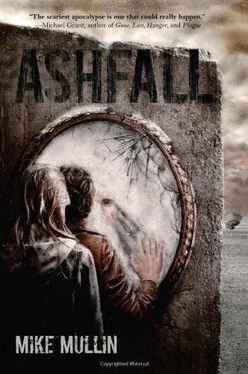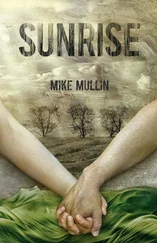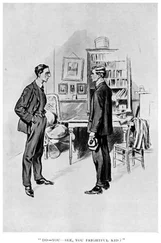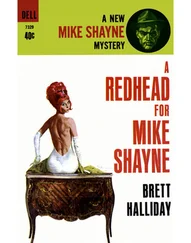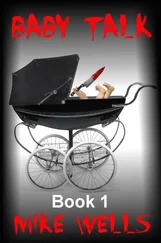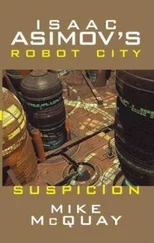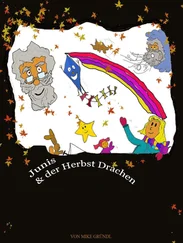Mike Mullin - Ashfall
Здесь есть возможность читать онлайн «Mike Mullin - Ashfall» весь текст электронной книги совершенно бесплатно (целиком полную версию без сокращений). В некоторых случаях можно слушать аудио, скачать через торрент в формате fb2 и присутствует краткое содержание. Жанр: Триллер, на английском языке. Описание произведения, (предисловие) а так же отзывы посетителей доступны на портале библиотеки ЛибКат.
- Название:Ashfall
- Автор:
- Жанр:
- Год:неизвестен
- ISBN:нет данных
- Рейтинг книги:3 / 5. Голосов: 1
-
Избранное:Добавить в избранное
- Отзывы:
-
Ваша оценка:
- 60
- 1
- 2
- 3
- 4
- 5
Ashfall: краткое содержание, описание и аннотация
Предлагаем к чтению аннотацию, описание, краткое содержание или предисловие (зависит от того, что написал сам автор книги «Ashfall»). Если вы не нашли необходимую информацию о книге — напишите в комментариях, мы постараемся отыскать её.
Ashfall — читать онлайн бесплатно полную книгу (весь текст) целиком
Ниже представлен текст книги, разбитый по страницам. Система сохранения места последней прочитанной страницы, позволяет с удобством читать онлайн бесплатно книгу «Ashfall», без необходимости каждый раз заново искать на чём Вы остановились. Поставьте закладку, и сможете в любой момент перейти на страницу, на которой закончили чтение.
Интервал:
Закладка:
“Yeah, I understand. I won’t hang around. I need to find my own family.”
“And when you go, don’t take all our supplies. I know Mom, she’ll try to convince you to stay, and failing that, she’ll load you down with more of our food than you can possibly carry.”
“I won’t.”
“I guess you’re entitled to some of it… You’ve been working pretty hard, considering that hole in your side.” Darla buried her head back under the truck’s hood. “Gimme a big flathead screwdriver.”
I found one and slapped it in her outstretched hand. Maybe it was my imagination, but it seemed as though her fingers lingered against mine a bit longer than necessary to take the screwdriver. Could the frozen shell she kept between us be thawing just a little?
We pulled the alternator out of the truck and carried it to the barn. Darla bolted it to a workbench. Then she welded a bicycle gear onto the disc on the side of the alternator. She had a welding setup that ran off two metal cylinders that looked like helium tanks. When that was finished, she disconnected the bicycle we’d been using to drive the grain grinder and connected it to the alternator with a long chain. She attached the alternator wires to a battery charger, the kind that held eight D-cells.
Meanwhile, I’d been doing nothing useful. Handing her a tool now and then, but mostly watching her work. She checked the tension on the chain, made an adjustment, and said, “Your turn to work. Get on your bike and ride.” Darla grinned. “I think I just quoted some band Mom likes.”
I climbed on the bike and started to pedal. It was easier than driving the gristmill-there was a lot less resistance. As I got the bike up to speed, a red light began glowing on the battery charger, lurid in the dimness of the barn.
“When that light changes to green, we’re done,” Darla said.
I pedaled away in silence, listening to the sound of my breathing grow louder and more labored as I rode. Each time I slowed a little, Darla snapped, “Faster!” or “Pedal harder!” I kept it up for a long time, maybe an hour or so, before she finally offered to relieve me. I might have gotten annoyed at her bossiness, but I was too tired to care.
I collapsed onto the dirty straw on the barn floor, utterly spent, as Darla mounted the bike and pumped the pedals. We traded off twice more, riding the bike at least three hours before that stupid light finally winked green.
By then, I was exhausted and hungry, and Darla wasn’t looking too perky, either. She pulled the batteries out of the charger and put them in her jacket pockets. We trudged to the house to wash up for dinner. I was surprised at how sweaty I’d gotten despite the cold air.
After dinner, all three of us sat around the fire in the living room while Darla fiddled with an old radio. Mostly we listened to static. My legs had paid dearly for that static: They ached. I reached down to rub my calves-it felt like rubbing tires, they were so tight.
Low on the AM dial, Darla finally got something. A couple of stations drifted in and out, frequencies changing slightly, as if the vagaries of the ash-laden atmosphere were somehow distorting them. One of them was playing music, of all the useless things they could do. Peppy, annoying, big band music, the kind my great-grandmother might have listened to on the radio. It baffled me why they were playing it now.
Another station was more helpful. They read nonstop news-all of it related to the eruption. The maddening bit was that we could only make out little snatches of news over the static as Darla chased the station around the dial. She caught it the first time at 590 AM, but it would drift as high as 640 and as low as 570 at times.
The first snatch of news was, “… In addition, the Admiral announced that a U.S. Navy relief convoy will dock at Port Hueneme in Oxnard, California, sometime tomorrow. While most supplies are designated for federal refugee camps in northeastern California, some food, medical supplies, and tents will be available to citizens through their local interim authority.
“Admiral McThune went on to say that a third Chinese humanitarian mission has been granted permission to land in Coos Bay, Oregon, joining the previous two in Newport and…”
“Damn. Lost it,” Darla said.
“Watch your mouth, young lady,” Mrs. Edmunds scolded.
Darla fiddled with the radio, looking for a signal.
“How big is this thing?” I asked. “If Oregon and California are as bad off as Iowa… how long will it take to get any help here?”
“Let’s see.” Mrs. Edmunds pulled an old Rand McNally road atlas off the shelf. Near the front there was a yellow map of the U.S. cross-hatched by blue interstates. Judging by the map, Oregon and Northern California were both closer to Yellowstone than we were.
The room was quiet except for the hiss and crackle of the radio and an occasional pop from the wood burning in the fireplace. I thought about all the people facing this disaster-the millions between me and the Oregon coast. Millions of them must have already died. I’d been incredibly lucky to survive this long. Darla and her mom were doing okay, digging and grinding corn, but most people wouldn’t have access to fields of buried corn or know how to improvise a grinding machine. Millions more people would die unless some kind of help arrived soon.
Darla found the station again. “Responding to critics,” he said, “the suspension of civil liberties contained in the Federal Emergency Recovery and Restoration of Order Act is temporary and will be lifted as soon as the crisis has passed, perhaps as early as late next year.’
“The vice president concluded his remarks with strong words for ‘those nations whose hoarding and profiteering caused the collapse of the international grain markets.’ He pledged to use the full force of the United States to insure an equitable…”
None of us were sure what to make of that. It didn’t sound good, but it also didn’t seem to affect us much. The only functioning government I’d seen since the disaster was Mr. Kloptsky’s at Cedar Falls High. And our grain market consisted of the corn we could dig up in a day.
We listened to the radio until the batteries died late that evening, but we only caught one more intelligible fragment: “… announced earlier today that, using the emergency powers granted it under FERROA, the Department of Homeland Security has appropriated a large tract of land near Barlow, Kentucky, to control the influx of refugees from southern Missouri. Construction will begin…”
This was more interesting. We found Barlow on the Kentucky page of the atlas. It took some searching-it was a tiny black speck of a town near the Mississippi River. Nowhere near us, but at least on the same side of the country.
“Maybe there’s help east of us,” I said.
“Sounds like there must be,” Mrs. Edmunds said.
“I need to leave soon.” I said it with some regret. I would miss Mrs. Edmunds. And I’d miss Darla.
“You’re welcome to stay. You’ve worked so hard-more than earned your keep.”
“Thanks. I…” A thought seized my brain: I’d be dead if not for them. I fought back tears. “I don’t know how to thank-”
“Shush,” Mrs. Edmunds said. “Anyone would have taken you in. Why, you were half-dead when you fell into our barn.”
Actually, anyone wouldn’t have taken me in. I’d met people who wouldn’t. The faceless person who’d pointed a rifle at me as I skied toward his farmhouse, for one. Target, for another. I shuddered at that memory. “I wish we’d heard more about what’s going on in Illinois.”
“Your family is there, right?” Mrs. Edmunds asked.
“Yeah… at least, that’s where they were headed.”
“Maybe someone in town would know more.”
Читать дальшеИнтервал:
Закладка:
Похожие книги на «Ashfall»
Представляем Вашему вниманию похожие книги на «Ashfall» списком для выбора. Мы отобрали схожую по названию и смыслу литературу в надежде предоставить читателям больше вариантов отыскать новые, интересные, ещё непрочитанные произведения.
Обсуждение, отзывы о книге «Ashfall» и просто собственные мнения читателей. Оставьте ваши комментарии, напишите, что Вы думаете о произведении, его смысле или главных героях. Укажите что конкретно понравилось, а что нет, и почему Вы так считаете.
